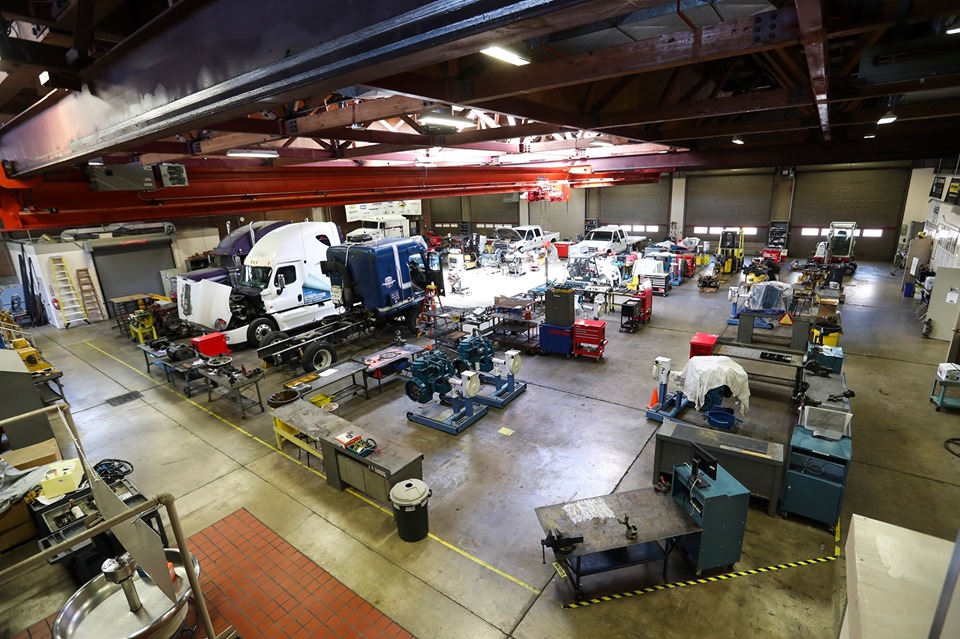College isn’t for everyone, yet changing the institutional mentality is like trying to turn a supertanker around in the middle of the ocean. But, it’s turning, slowly….

By recent accounts, college tuition is rising nearly eight times faster than wages. A four-year degree is still deemed valuable, but you’ve got to be able to afford it with a minimum of debt and it has to be the basis of a well-paying job when you exit. If not, you’re stuck. Most recently, college loan delinquencies are rising, during a very strong economic cycle? Does this suggest there are too many college degrees? It might!
“Our biggest challenge today is that guidance counselors push every student into college,” says Jim Reid, director of apprenticeships for the International Association of Machinists and Aerospace Workers (IAM).
There are many advantages to the skilled trades, and it’s important that they be considered as an alternative to a university education:
· They are a way to earn and learn
· Your creation is typically visual(carpentry) and/or you problem-solve(mechanic)
· You often work as part of a team, with others
ABC’s vice president Greg Sizemore of environment, health, safety and workforce development directs his advice toward parents. The skilled trades,” said Sizemore, “are not merely an alternative to college. A trade is equal to college. If you’re a Ph.D. and you’re at home on a Saturday night in July and your air conditioner quits, the smartest person around is somebody who can fix that air conditioner. The trades are one of the most noble career choices that any individual can make. Banks would not be built. Buildings to house machines, hospitals, and any other structure would not be built without the trades. It’s a career choice, not just a job.”
Some of Your Skiled Trades choices…
Electricians are well paid as a general matter, with federal data indicating median pay of $54,110. And the closer these trade professionals get to the engineering end of the spectrum, or the better their management and organizational skills, the more they make. Those credentials don’t come easily or overnight and usually require advanced training in technology, engineering, or business—or all of the above.
Welders use any one of a number of processes to join metal using molten metal. When everything cools, you’ve got a joint that’s as strong or stronger than the base metal. The median pay for welders, according to the American Welding Society, is $41,000.
Masons build with concrete, mortar, concrete block, brick, and stone. Masons may pour a concrete wheelchair ramp at a house one day, do a brick face on a shopping center the next, and then move on to build a concrete-block elevator shaft for a condominium complex. The work is varied and, as with carpentry, there’s a wide spread in their earnings. The median pay for blockmasters, brickmasons, and stonemasters is $48,200.
Plumbers tend to be well-paid. It’s hard and often dirty, and it has a high licensing requirement due to its effect on public safety and health. Federal data indicates plumbers, pipefitters, and steamfitters have a median pay of about $52,590
Carpenters range from being the most specific construction tradespeople (framers, deck builders, and finish carpenters) to being generalists that can frame a house, install vinyl siding, and build forms for concrete. The wide variety of work that they do accounts for why their pay spread is so large, from $21,500 to $60,000.
If you want to be an auto mechanic, you’ll never be one without work. Unlike the construction trades, that can be hampered by everything from the weather to the stock market, not so with the mechanic, who works indoors, clocks a regular work day with overtime when needed, and that’s about it. It’s good, steady, reliable work with a median wage of $39,550; federal mean wage data shows $42,660. If you have that inherent desire to fix a broken thing or make a mechanical thing better, then being a mechanic is about as good as it gets.
Every branch of the military needs people with building trades and mechanical expertise because the military builds and maintains both permanent and temporary structures of various kinds.
So, you like the idea of a skilled trade… let’s get you started!
📷
How to Find the Right School?
Few life decisions have a more profound impact on your future than the choice of where to continue your education after high school. Lifetime earnings and even personal health are closely tied to post
secondary education. Graduating from an occupation-specific trade, technical, or career school can lead to just as lucrative a job as a traditional four-year degree. There are thousands of school choices.

The Department of Education’s College Scorecard may be the best, simplest, and most up-to-date online resource out there. It lets users customize school searches by area of interest, specific programs, region, and cost. For instance, inputting a zip code in Grove City, Ohio (43123), and searching for “construction trades” programs within a 150-mile radius yields five schools and provides side-by-side comparisons of average annual cost, graduation rate, and salary after attending. The College Scorecard gives you a macro view of choices for any type of post secondary option, from prestigious universities to lesser known but excellent career schools.
Don't Forget Local Community College: Trade and tech schools may brand themselves more precisely to occupation-related programs, but the nation’s community colleges have been training skilled workers for decades and often have more established instructors and reputations.
There are 17 community colleges in Oregon. Not all have trade classes, but many do.
High schools are seeing a resurgence in vocational training classes. They are under a new name called Career Technical Education. There are several CTE classes in the Willamette Valley and Central Oregon.



Comentários